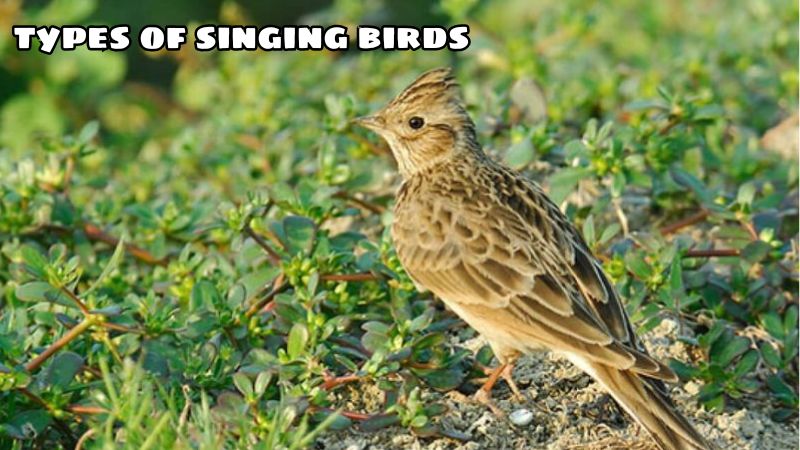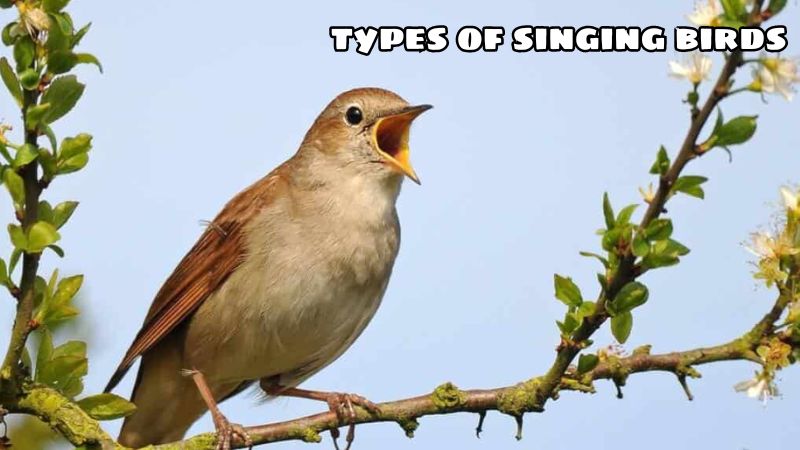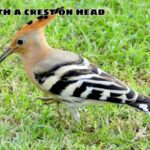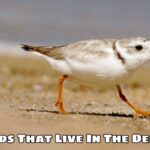Singing birds are nature’s great musical artists, each taking to the stage with rich and varied ensembles. Their sounds are not only an expression of life but also a part of natural musical culture, creating a sophisticated and vibrant atmosphere for the surrounding environment. From the clear song of a sparrow in a semi-park or the deep song of a hornbill in the mountains and forests, each species of bird brings its own melody, awakening and relaxing the human soul. So let’s take a look at the types of singing birds with Exoticbirdscorner!
Introduction to singing birds
Singing birds are birds that possess melodious voices, bringing people moments of relaxation and peace. They are often raised for ornamental purposes, creating highlights for living spaces or participating in exciting bird singing competitions.
The world of singing birds is extremely rich with countless different species of birds, each with its own unique beauty and song. From small birds such as warblers and field sparrows, to large birds such as nightingales, crested birds,… all contribute to making the picture of nature more vivid and vivid. brilliant.
Birdsong is not merely a sound, but also a symbol of freedom, joy and vitality. Listening to the sound of birds singing every morning or when sunset falls, our hearts suddenly become peaceful, gentle and full of inspiration.
Singing birds also play an important role in the ecosystem, contributing to the balance of nature and controlling the number of insects. They are also an endless source of inspiration for works of art, music and literature.
Raising singing birds is not only an elegant hobby, but also shows love for nature and human passion. The melodious sound of birds singing brings us joy of life, relaxation and beautiful spiritual values.
Take time to listen to the birds singing, you will feel the magic of nature and find your soul becoming more pure.
Some types of singing birds are popular in Vietnam
Vietnam is blessed by nature with a rich and diverse ecosystem, in which singing birds with melodious songs are indispensable, 婉转. Below are some popular songbirds that are loved by many people:
1. Nightingale
- Famous for many subspecies, the most popular of which are the Indochinese nightingale and the ground nightingale.
- Possesses a melodious, melodious song with many different tones, demonstrating the diversity and richness of sound.
Thanks to its excellent song, nightingales are often highly appreciated and are active participants in bird singing competitions.
2. Crested bird
- Attracted by its colorful and beautiful plumage, especially the crest on its head, creating a unique and unique feature.
- Has a chirping, pleasant chirping sound, capable of subtly imitating other sounds, bringing enjoyment to the listener.
- Good adaptability to the captive environment, easy to raise and care for, suitable for many people.
3. Smelling bird
- Impressed by the jet black, shiny fur, creating a luxurious and noble appearance.
- Possesses a strong, far-reaching song, often compared to the sound of a temple bell, bringing purity and peace to the soul.
- Although not as popular as the nightingale and comb, the blackbird still has its own charm and is loved by many people for its beauty and unique song.
4. Ringed bird
- Stands out with its bright orange-yellow fur, creating a highlight in the space.
- Brings clear, clear, easy-to-listen singing, bringing a feeling of relaxation and refreshment.
- Easy to raise, less picky about eating, suitable for beginner bird keepers, does not require much care experience.
In addition to the singing birds mentioned above, Vietnam also has many other bird species with unique characteristics and songs, contributing to enriching the natural picture and making it more diverse. Raising singing birds not only brings spiritual joy, but also shows people’s love of nature and passion for the wonderful sounds from the bird world.

Criteria for evaluating good singing birds
For those who love singing birds, evaluating the quality of a singing bird is not only based on personal preferences but also on specific professional criteria. Below are some important criteria to evaluate a good singing bird:
1. Voice quality
Clear, clear: The singing voice must be clear, resonant, not shrill or hoarse. The sound must spread smoothly and comfortably to the listener.
There are many diverse tones and melodies: Birds that sing well must possess many different tones in their song, demonstrating the richness and variation in sound. The ability to sing delicately and rhythmically is also a plus point for the bird.
Ability to imitate other sounds: Singing birds’ ability to imitate other birds, human voices or sounds in nature clearly and accurately is also highly appreciated.
2. Reverberation
The sound of a good bird’s song must have a long resonance and can spread in large spaces. The far-reaching sound represents the bird’s good health and potential.
3. Durability
Birds that sing well need to have good endurance and be able to sing continuously for a long time without getting tired or out of breath. The ability to sing persistently shows the bird’s health and bravery.
4. Performance
Birds sing well and must sing regularly and regularly, without being affected by environmental factors or mood. Stable performance shows the professionalism and class of the bird.
In addition to the above criteria, judging whether a bird sings well depends on the listener’s personal preferences. However, these criteria will help you have more basis to objectively and more professionally evaluate the quality of a singing bird.
How to raise singing birds
Raising songbirds is not only an elegant hobby, bringing people relaxing moments with melodious songs, but also shows the love of nature and passion of birders. To have a healthy, good-singing bird, breeders need to pay attention to the following:
1. Bird cage
- Appropriate size: The bird cage needs to be sized appropriately to the size of the bird, ensuring enough space for the bird to freely fly, jump, and roam.
- Safe materials: Bird cages should be made from safe materials that are not harmful to the bird’s health such as bamboo, wood, etc. Bird cages need to have ventilation to ensure good air circulation.
- Regular cleaning: Regularly clean bird cages to ensure a clean living environment for birds and prevent diseases.
2. Food
- Diverse regime: Provide birds with a variety of foods such as bird bran, fresh fruit, insects,… to ensure adequate nutrition for birds to grow healthily.
- Fresh and clean: Always make sure bird food is fresh, clean, and free of mold or damage.
- Drinking water: Provide enough clean water for birds to drink every day, change the water regularly.
3. Care
- Sunbathing: Let your bird sunbathe regularly 1-2 times per week to help the bird synthesize vitamin D, which is good for the bird’s health and plumage.
- Training: Training birds to sing to enhance singing skills and performance, helping birds sing better and more diversely.
- Pay attention to health: Observe birds regularly to detect early signs of abnormalities in the bird’s health. If the bird shows signs of illness, it is necessary to take the bird to a veterinarian for timely examination and treatment.
Raising songbirds is an elegant hobby that requires patience and love. By providing your bird with a good living environment, adequate nutrition and attentive care, you will have a healthy singing bird that sings well and brings you wonderful moments of relaxation.
Epilogue
Singing birds are an integral part of the beauty of nature, providing pleasant and relaxing music to their surroundings. From the sweet song of sparrows on spring branches, to the diverse melodies of starlings or the captivating song of hummingbirds in the jungle, each species of bird brings its own unique and different nuance. special. This diversity not only enriches natural sounds but also helps us better understand the musical cultural heritage that nature bestows.





